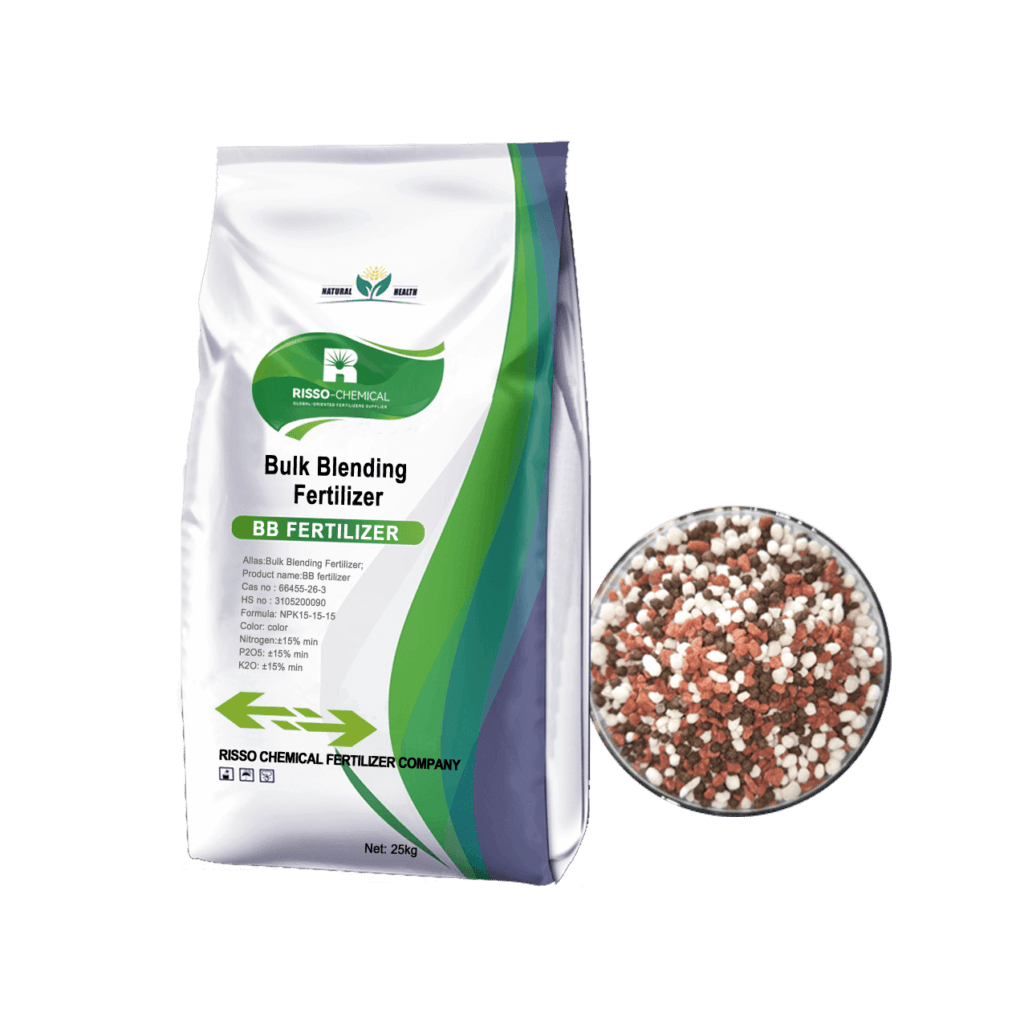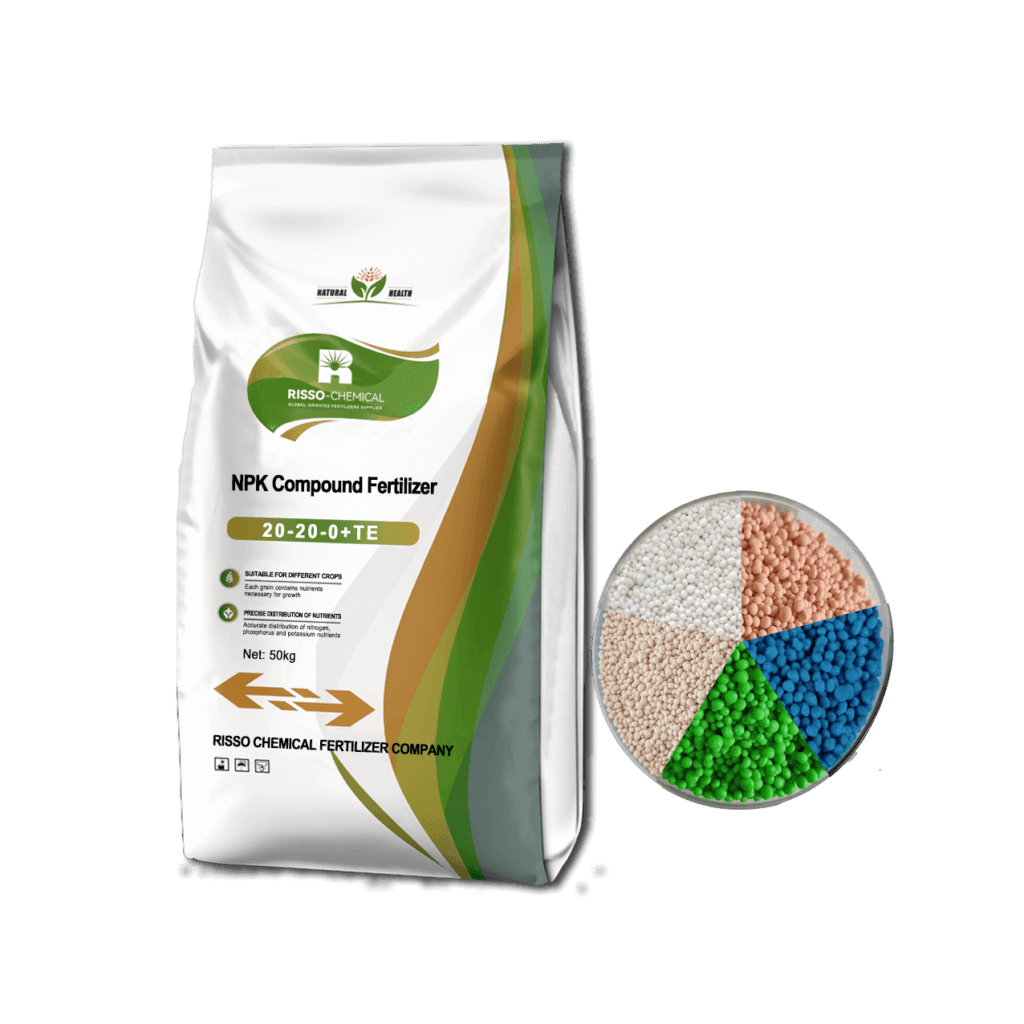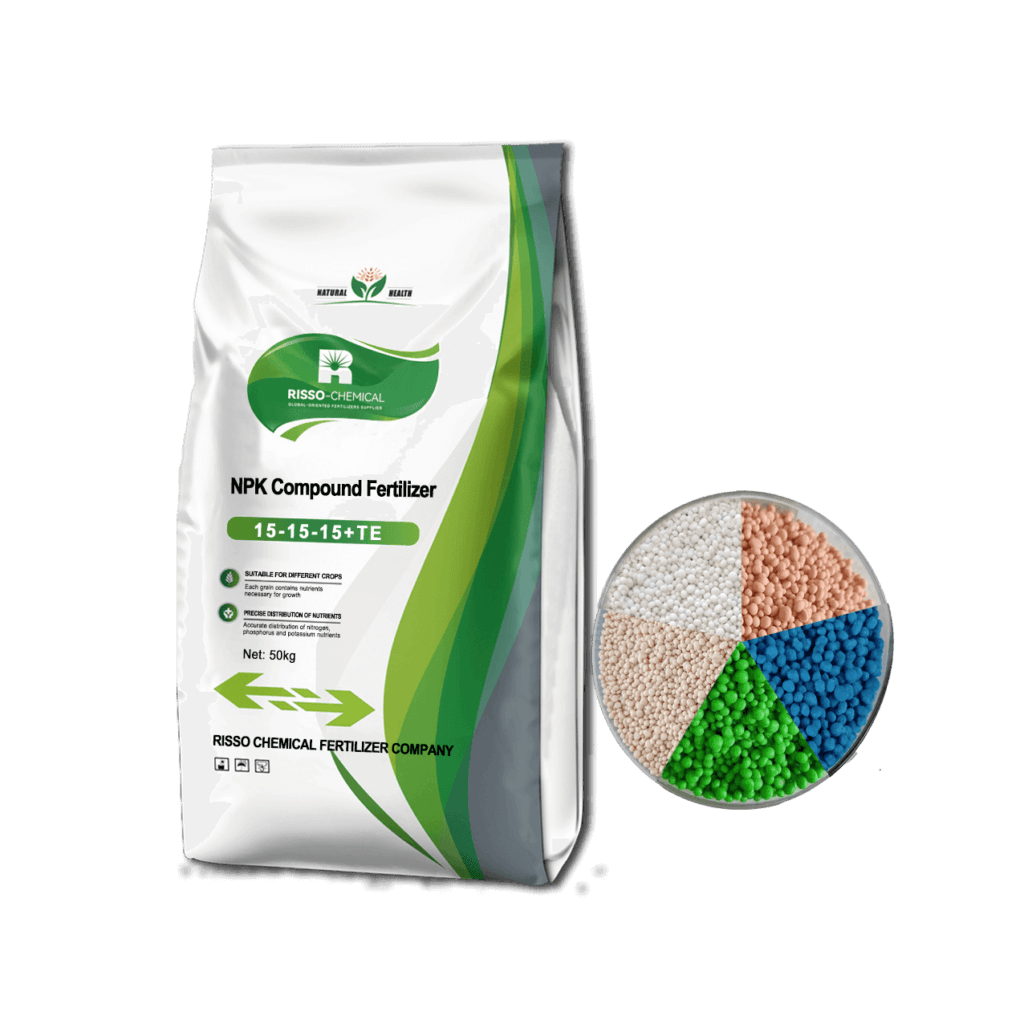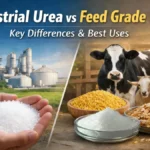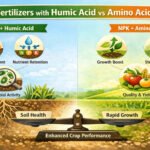Let more growers get greater benefits
Difference Between Compound Fertilizer and Mixed Fertilizer
- Industry News
- November 28, 2018
- 10:59 am
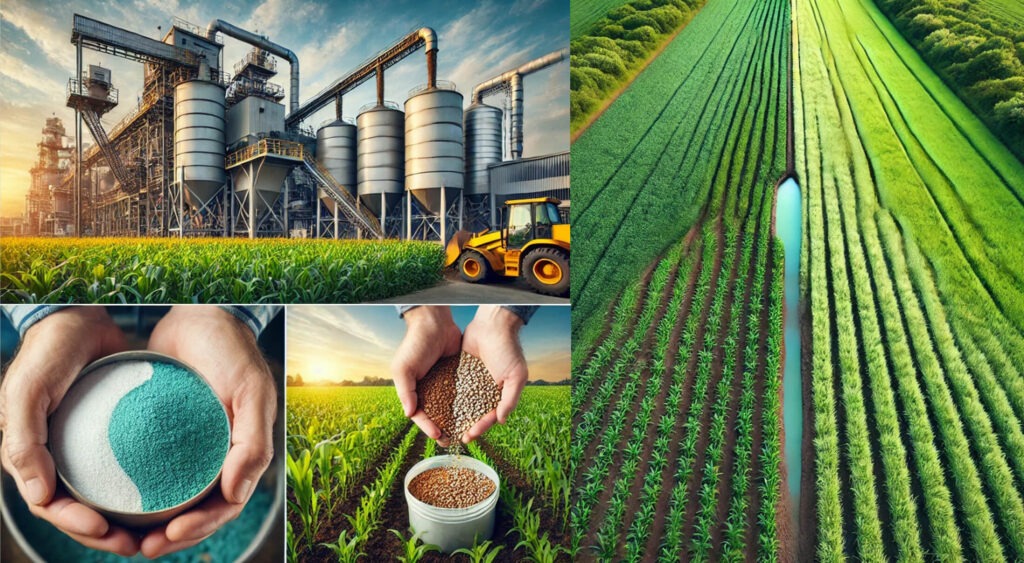

Choosing the right fertilizer is crucial for optimizing crop yield and soil health. This article explores the key differences between compound fertilizer and mixed fertilizer (bulk blended fertilizer – BB fertilizer) to help farmers and agribusinesses make informed decisions.
Table of Contents
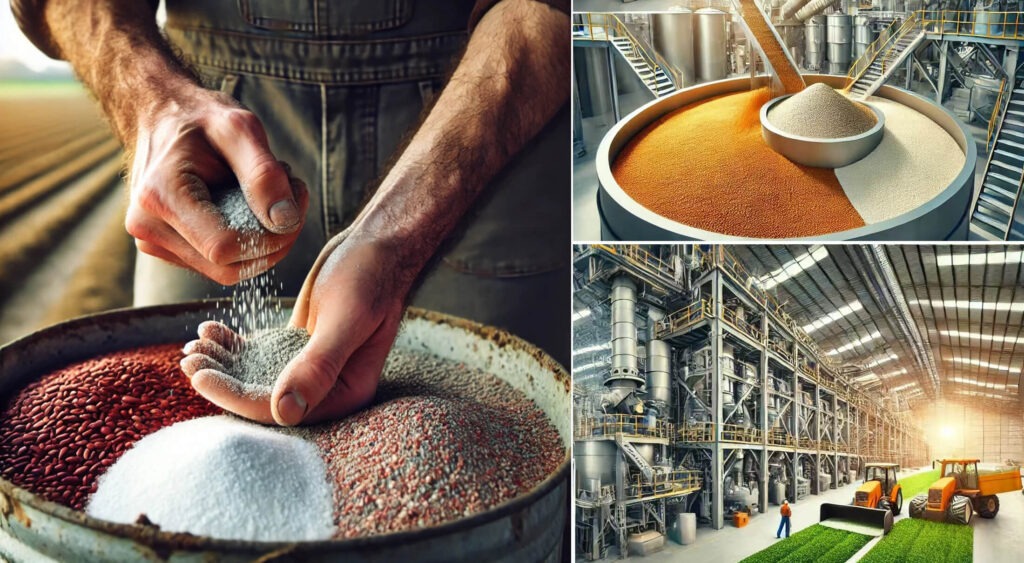

1. Production Method
The primary distinction between compound fertilizer and mixed fertilizer lies in their production methods.
Compound Fertilizer: Manufactured using raw materials that undergo chemical reactions followed by granulation. The main production processes include drum granulation, disc granulation, shotcreting granulation, and high tower granulation. These processes require advanced equipment, making them suitable only for large-scale production. Due to production constraints, the ratio of nitrogen (N), phosphorus (P), and potassium (K) in compound fertilizers is relatively fixed, with fewer available specifications.
Mixed Fertilizer (Bulk Blended Fertilizer – BB Fertilizer): Created by directly mixing different fertilizers containing various nutrients. For example, mixing urea with potassium chloride results in a mixed fertilizer containing nitrogen and potassium. Unlike compound fertilizer, mixed fertilizers can be separated back into their original components. Additionally, farmers can create mixed fertilizers at home by blending the required nutrients manually.
2. Method of Application
Compound Fertilizer: Due to chemical bonding between its active components, compound fertilizer decomposes slowly and releases nutrients gradually. This characteristic makes it less prone to loss and volatilization, making it more suitable as a base fertilizer.
Mixed Fertilizer: Provides flexibility in nutrient composition, allowing farmers to adjust NPK ratios according to crop type and growth stage. For instance, when planting wheat with straw incorporation, adding extra urea to a traditional compound fertilizer can increase nitrogen levels, promoting straw decomposition.
3. Cost Comparison
Compound Fertilizer: Due to its complex manufacturing process and stable nutrient content, compound fertilizer is more expensive than mixed fertilizer. However, its higher nutrient utilization rate makes it a cost-effective option for long-term soil fertility and yield improvement.
Mixed Fertilizer: More affordable and customizable. Farmers can blend fertilizers based on specific crop requirements, making it a flexible and economical choice. However, its shorter-lasting effect may require more frequent applications.
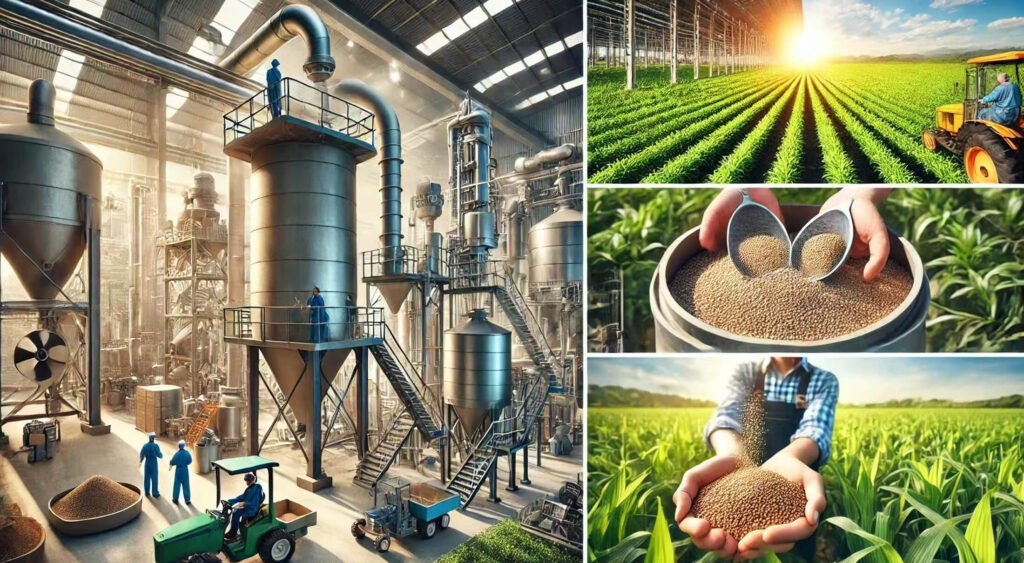

4. Key Differences at a Glance
| Feature | Compound Fertilizer | Mixed Fertilizer (BB Fertilizer) |
|---|---|---|
| Production | Chemically processed and granulated | Physically blended without chemical reaction |
| Nutrient Ratio | Fixed | Customizable |
| Release Speed | Slow, long-lasting | Faster, short-term impact |
| Usage | Best as a base fertilizer | Can be tailored to different growth stages |
| Cost | Higher but with better nutrient efficiency | Lower but requires frequent application |
| Separation | Cannot be separated into original components | Can be separated into individual fertilizers |
Types of Compound Fertilizers
There are various compound fertilizers available in the market, including:
Nitrogen-Phosphorus (NP) Fertilizers: Nitrophosphate, ammonium phosphate, ammonium metaphosphate, and ammoniated superphosphate.
Nitrogen-Potassium (NK) Fertilizers: Potassium nitrate.
Phosphorus-Potassium (PK) Fertilizers: Potassium phosphate.
NPK Compound Fertilizers: Formulated with nitrogen, phosphorus, and potassium, sometimes enriched with micronutrients like calcium, magnesium, and sulfur.
Why Choose the Right Fertilizer?
Choosing between compound fertilizer and mixed fertilizer depends on your agricultural needs. Compound fertilizers offer consistent nutrient release and higher efficiency, while mixed fertilizers provide affordability and flexibility.
At Rissochemical, we offer premium-quality fertilizers, including:
NPK Compound Fertilizer (Low Chloride & Blue Granular NPK)
15-5-20 Fertilizer
20-20-20 Fertilizer
Ammonium Sulphate Fertilizer
Bulk Blended NPK Fertilizers
Boost your crop yield and improve soil fertility with the best fertilizers available. Take action today and purchase high-quality fertilizers from Rissochemical for optimal agricultural results!
Compound Fertilizer and Mixed Fertilizer Related Products
If you want to know other questions about NPK Fertilizers please contact us and we will provide professional answers.
- Article
What will you get when touch?
✔ Quick & helpful reply within 6 hours.
✔ Tailored solutions for your project.
✔ One-stop product, tech, market
TRENDING
Want to find a China fertilizer manufacturer?
Risso will be your best choice; send us your request for your fertilizer details requirement
TAIAN RISSO CHEMICAL FERTILIZER CO.,LTD.
- Address: High-tech Development Zone, Taian City, Shandong Province
© Copyright 2017 RISSO CHEMICAL. All Rights Reserved.



